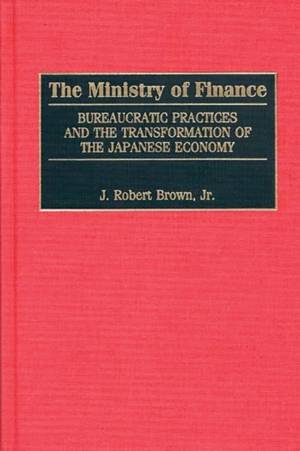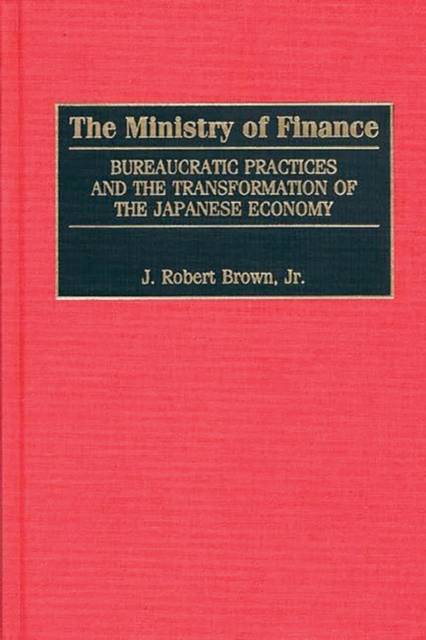
- Retrait gratuit dans votre magasin Club
- 7.000.000 titres dans notre catalogue
- Payer en toute sécurité
- Toujours un magasin près de chez vous
- Retrait gratuit dans votre magasin Club
- 7.000.000 titres dans notre catalogue
- Payer en toute sécurité
- Toujours un magasin près de chez vous
The Ministry of Finance
Bureaucratic Practices and the Transformation of the Japanese Economy
J Robert BrownDescription
Japan's economy, once the envy of the world, has recently experienced a period of malaise and stagnation. This is due in part to over-regulation and resistance to change within the Japanese bureaucracy. Many argue that this bureaucracy must be replaced with a system similar to that in the United States, involving ruthless competition, fluid job markets unhindered by notions of lifetime employment, tolerance of business failures, and the elevation of conflict over consensus in economic decision making. The author argues that not only will the bureaucracy, in the form of the Ministry of Finance, retain its position, it will also evolve to be more consistent with the transformed economic system allowing the Japanese economy to recover and retain its important role in the global economy.
The book details the history of the Ministry of Finance and Japan's financial markets since World War II. It describes the economic crisis in Asia and Japan's attempts to transform its bureaucracy to better compete in the global arena. Economists, business practitioners, trade specialists, and anyone interested in Japan's role in the world economy will find this lucid and detailed book an invaluable resource.Spécifications
Parties prenantes
- Auteur(s) :
- Editeur:
Contenu
- Nombre de pages :
- 288
- Langue:
- Anglais
Caractéristiques
- EAN:
- 9781567202304
- Date de parution :
- 30-01-99
- Format:
- Livre relié
- Format numérique:
- Genaaid
- Dimensions :
- 162 mm x 242 mm
- Poids :
- 621 g







